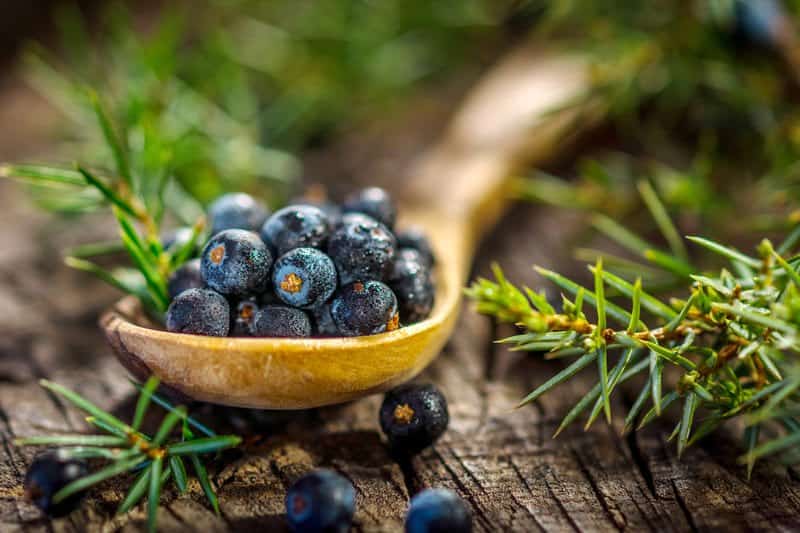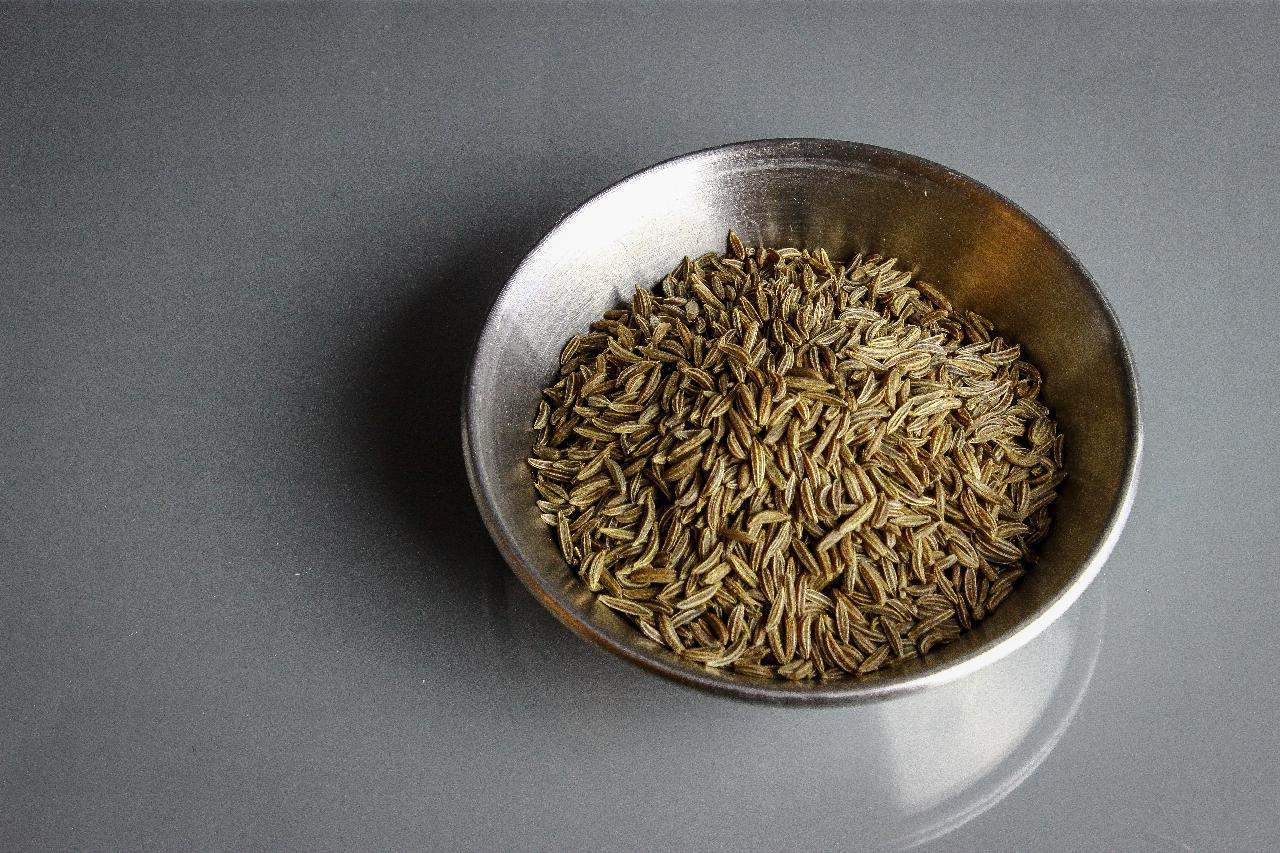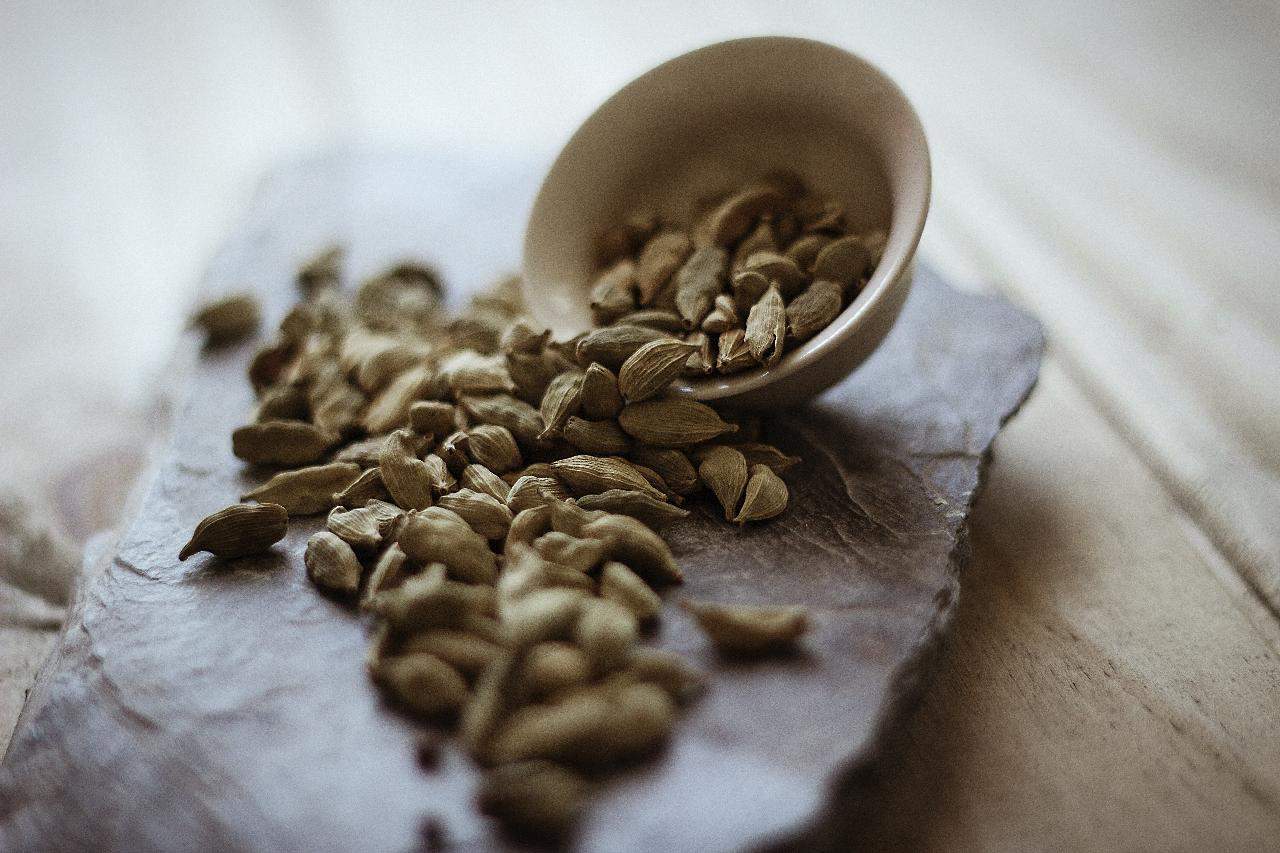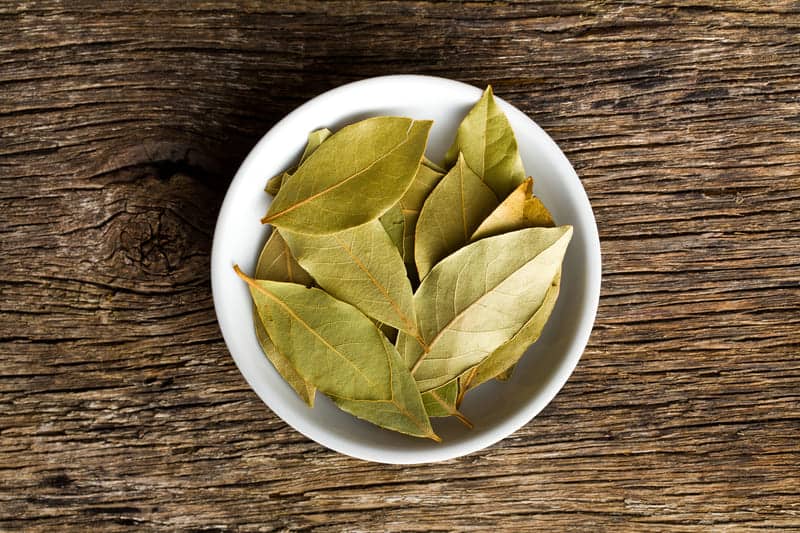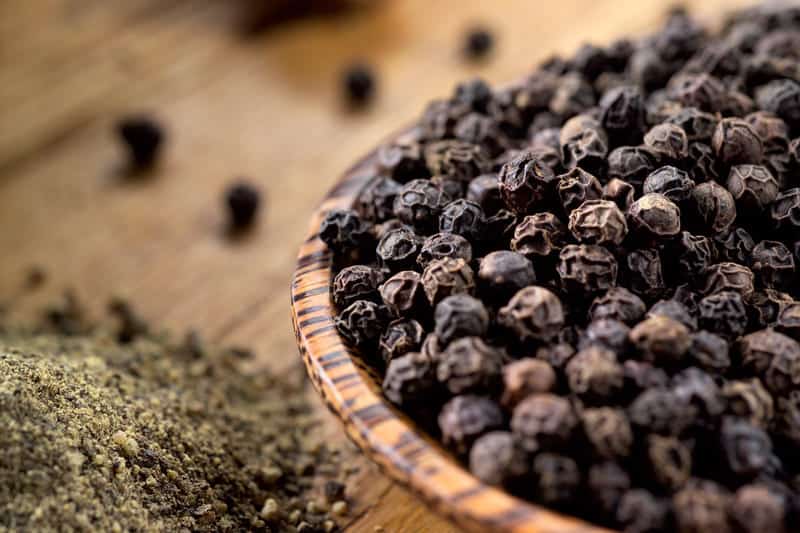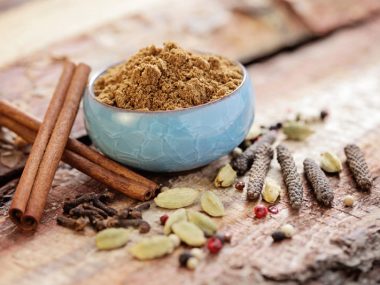Juniper berries quite resemble one of our favorite berries: blueberry. Before you get confused, both are totally different. Juniper berries have earned their name due to its culinary uses. Most European and Scandinavian cuisine uses it for meat dishes like game meat and even for sauerkraut dishes.
Let’s see how you can perfect these European dishes without juniper berries.
What’s a Juniper Berries?
Juniper berries are mostly found in Europe, dubbed as the most valued spice in those areas. When it reaches its maturity period, it’s taste develops a quite unique herb-ish and citrusy flavor. When used as a spice, the berries are slightly crushed and dried to get the best of its flavors. It’s also good to consume when fresh.
Juniper Berries Substitute
1. Rosemary
Rosemary is a diverse herb. You can get it dried or buy the whole plant from the grocery store to get a sustainable herb source straight from your kitchen. It is perfect for pan-seared dishes like steaks. A few sprigs of it can add more aroma and taste to the meat. Aside from its culinary uses, it’s also popular for making perfumes, essential oils, and fragrant for cleaning liquid soaps.
How To Substitute
The substitution is quite simple for this one. All you need to do is add a few rosemary sprigs to the dish. You can use at least 2-3 sprigs of rosemary to substitute 1 teaspoon of juniper berries.
This can already make a difference with the absence of juniper berries. If you just harvested some fresh game meat or other red meats, this is a perfect substitute that you can use to achieve that distinct aroma and taste.
You can mix the rosemary on the marinade beforehand or have it cooked directly onto the pan with the meat. I highly recommend doing the latter since it boosts the flavor and the aroma of the meat all the more.
2. Caraway Seeds
If there are caraway seeds available in your area, then perfect! Caraway seeds or often called as meridian fennel and Persian cumin is another flavor seed that offers a subtle flavor but enormous aroma to every dish. You can find this mostly in herbs and spices shops. If you can’t you may shop online since international shipments are honored in most countries.
It’s one of the effective substitutes over juniper berries because of its almost licorice taste highly aromatic characteristics. You can really tell when a dish has it because it brings out the best of your dish without overpowering it that much.
How To Substitute
You may use the ratio of 1:1 when substituting it. You can use one teaspoon of caraway seeds to substitute 1 teaspoon of juniper berries. Then just add a bay leaf or two to the dish depending on how much you like it to be aromatic. Feel free to adjust the seasonings based on your preference.
3. Gin
Yes, gin can be an ultimate substitute for juniper berries. I’m pretty sure some of us keep a stash of gin collections in our bar area or cellar. The next time you need juniper berries and have none, skip running to the grocery store and go to your cellar instead. There’s no specific brand or alcohol content for the type of gin. Whatever you have at home, can be used for this substitution.
How To Substitute
For the substitution, just add a teaspoon of gin to replace a tablespoon of juniper berries. You can adjust the content if you want to depend on how comfortable you are with the taste. Also, if you want it more aromatic, you can add other herbs or spices just to boost the aroma. The gin adds a more subtle aroma and sometimes it’s not even noticeable.
4. Cardamom
Cardamom is a very special spice mainly used in Indian cuisine and even in other delectable European sweets. It’s surprisingly unique and flexible as well when it comes to the kitchen. Just when you think that it has limited use, you can actually use this spice as a substitute for the unique taste and aroma of juniper berries.
The seeds of cardamom are harvested and then dried before being consumed. It’s more excellent to use on savory dishes to boost its aroma and flavor. Other types of cooking use its whole pods and seeds when cooking.
For convenience, it’s best purchased when ground. The only thing about this spice is that it’s a bit expensive compared to the other entries we’ve listed a while back. But, it’s worth the substitution because of its capability to copy the juniper berries’ unique characteristics.
How To Substitute
The substitution is quite easy as well. Just follow the 1:1 ratio. For every 1 teaspoon of juniper berries, substitute it with 1 teaspoon of cardamom. It will depend as well on how big your dish is. If you’re making a big batch, just adjust the contents and taste test before adding more content to it.
5. Bay Leaves
Bay Leaf is another strong and very aromatic spice that is known around the world. It’s really fragrant by just using only one leaf, it can already do some magic. You can get these ground or whole dried leaves. That depends on what you prefer to have. Bay leaves are not really edible, it’s only used for its distinguished aroma and flavor. It’s usually discarded after cooking.
How To Substitute
If you currently have the whole leaves, substitute one teaspoon of juniper berries over 1-2 bay leaves. If you have the ground bay leaves, then use the 1:1 ratio. Don’t worry about going beyond the ratio since bay leaves are not that strong whenever you use too much of its contents.
6. Hickory Spice
Hickory spices are now readily available in most grocery stores that come in all types of brands. Hickory spice is a mixture of different herbs and spices like cumin, garlic, onion, chili, salt, and of course, hickory powder. No wonder this spice is very aromatic and flavorful, a perfect choice to substitute juniper berries.
How To Substitute
You can substitute a teaspoon of juniper berries with 1.5 teaspoons of hickory spice. If you like the kick, you can do more than that. Its spice is not that hot so I highly recommend using more than the 1:1 ratio. To know if the spice is fit for your palate, you can do a taste test. If you like it, you may adjust the taste and go from there.
7. Black pepper
Black pepper is easy to find as a substitute for juniper berries. It is one of the most used spices in the world that pairs well with many other ingredients. Some of the seasonings that are a good match with black pepper are cumin, turmeric, garlic, cardamom, and lemon zest.
Black pepper has an earthy, slightly spicy flavor and is added to various savory dishes to enhance their flavor. It is used in vegetables, meats, fish, soups, sauces, stir-fries, pasta, salad dressings, and many more.
You can use black pepper as whole or ground instead of juniper berries in your dishes. Substitute juniper berries with black pepper in a 1:1ratio.
8. Pinewood
Pinewood is a good substitute for juniper berries if you want to get a piney flavor in your drinks and recipes. To make a tea, you can use the pine needles, which have a fresh, pine, minty flavor, or add them to cocktails, sauces, bread, soups, meat and fish marinades, salad dressings, and other dishes.
Younger pine needles have a milder flavor and are softer, making them better for cooking. Use one teaspoon of pinewood needles as a substitute for one teaspoon of juniper berries to get the desired flavor.
You can add more to taste but be careful not to add too much because you can overpower the other flavors in the dish.
9. Cranberries
Cranberries are small red fruits with a tart flavor. They are used for making juice and the famous cranberry sauce.
Dried and fresh cranberries are also used in pies, bread, cookies, muffins, fruit salads, jellies, slaws, salads, roasted meat and poultry, and other sweet and savory recipes.
You can use cranberries instead of juniper berries to make tea or in your sweet and savory recipes and beverages. Substitute juniper berries with cranberries in a 1:1 ratio.
10. Lingonberries
Lingonberries are small fruits with a sour, tart, slightly sweet flavor and bright red color. They are usually used in soups, wines, cheesecakes, pickles, baked goods, sauces, and cocktails.
Lingonberries are also used to make syrup and jam, which pair well with fish, red meat, game meats, various cocktails, and desserts.
Even though lingonberries don’t have the same flavor as juniper berries, they will enhance the flavor of your drinks and sweet and savory recipes. You can substitute juniper berries with lingonberries in a 1:1 ratio.
11. Juniper extract
Juniper extract is another substitute you can use instead of juniper berries. You can buy or even make juniper extract at home with just a few ingredients.
The main ingredient you will need to make juniper extract is juniper berries. Then you will also need 60%neutral alcohol, one mason jar with an airtight seal, a dark bottle, cheesecloth, and a sieve.
The ratio of juniper berries and alcohol is 1:5.In a mortar and pestle, crush the berries and put them in the jar. Add the alcohol and seal the jar tightly. The extract needs to stay in the jar for a minimum of two weeks, and during that time, you have to stir it daily.
After two weeks, you can smell and mix a small amount of the extract with little water to taste it. You can keep the extract in the jar for about six weeks to get the best flavor.
When the extract is ready, line the sieve with the cheesecloth and pour the extract over the cheesecloth. Keep it in an airtight sealed dark bottle or jar in a cold and dry place away from heat and light.
You can use Juniper extract in your recipes and drinks as a substitute for juniper berries. Just add a few drops; try and add more to taste. When using juniper extract as a substitute for juniper berries, have in mind that it has a concentrated flavor and contains alcohol.
If you don’t like alcohol, you can use water instead when making the extract. But juniper extract made with water will last only for about two weeks. In comparison, the one made with alcohol can last indefinitely.
12. Grains of paradise
Grains of paradise are small seeds with red-brown color and herbal, peppery, warm, woody flavor with hints of ginger, coriander, cardamom, nutmeg, citrus, and juniper.
They are used in spice rubs, stews, stir-fries, salads, apple pie filling, gingerbread, soups, curries, and other sweet and savory recipes. Grains of paradise are added whole and removed before serving.
They don’t have the same flavor as juniper berries, but you can use them instead to give a hint of juniper berries and a warm peppery taste to your recipes. Substitute juniper berries with grains of paradise in a 1:1 ratio.
Related Questions
Can allspice be substituted for juniper berries?
Juniper berries and allspice have some similar flavor notes, but they don’t have the same flavor. Therefore, you can use allspice as a substitute for juniper berries, but you will not get the pine flavor characteristic of the juniper berries.
Is juniper the same as rosemary?
Juniper is not the same as rosemary, but it has a piney flavor similar to rosemary. Therefore, rosemary can be used as a substitute for juniper in vegetable dishes, marinades, pasta, meat dishes, fish, stews, soups, and other dishes. You can use 2-3 sprigs of rosemary as a substitute for one teaspoon of juniper berries to get a similar flavor.
What is the flavor of juniper berries?
Juniper berries have a piney, woody, slightly bitter flavor with hints of citrus. They can be used fresh or dried, whole or crushed in various dishes and drinks. Gin is one of the drinks that is flavored with juniper berries, and they are responsible for the piney flavor gin is well known for.
Are juniper berries the same as blueberries?
Juniper berries are not the same as blueberries, but they look similar to them. They don’t have the same flavor and can’t be used as each other’s substitutes because blueberries have a mild, sweet flavor while juniper berries have a strong piney flavor.
Blueberries are also bigger than juniper berries, and because of their sweet taste, you can eat them as they are, which is not the case with juniper berries.
Key Takeaway
Unique herbs and spices just like juniper berries can be intimidating to replace or substitute because of its specific uses. However, with the proper knowledge of other herbs and spices available out there, it could be easier to mix, match, and substitute those from one another.
The best advice I can give is to always visit your nearby herbs and spices shop and learn to understand and study its unique characteristics.
Experiment with dishes and take note of those that can be substituted with another. So the next time you run out with one thing, it would be easier for you to pick up which appropriate herb to use instead.
